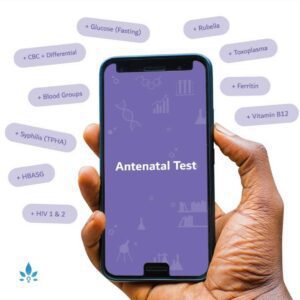What is Antenatal Depression?


Postpartum depression is a complication of pregnancy that most women have heard about. This is a good thing since about 15 percent of moms experience it. However, antenatal depression, or depression during pregnancy, is something that tends to be talked about less. This is unfortunate because failing to recognize it can put undue stress on a woman and her unborn baby.
It is estimated that about 7-20 percent of pregnant women suffer from antenatal depression. This is quite a large number, especially considering that the old way of thinking was that the hormones of pregnancy actually “protected” women against depression. Even more shocking is that some studies have shown that only about 5 percent of these women receive any treatment for their depression.
Why the lack of treatment, especially in a group of women who have such frequent contact with healthcare providers? Some women don’t feel comfortable disclosing their depressive symptoms because they are afraid of being judged or worry that their child might be taken away from them. Another reason is that some doctors and midwives don’t screen for depression, so since it is not asked, it is assumed that it’s not important enough to be talked about.
Additionally, some providers do not feel comfortable prescribing medications to treat depression in pregnancy out of fear of harming the fetus, so they refuse to prescribe these medications even when they are indicated. They may recommend therapy instead, but many insurance plans do not cover it. This leaves a woman with depression completely untreated.
We know that untreated depression in pregnancy has negative effects on both mom and baby. These mothers are at a much higher risk of developing postpartum depression, which can have a host of negative effects on their health and bonding with their baby. Depression that is untreated also makes a woman more likely to miss prenatal appointments, eat poorly, use illicit substances, and attempt suicide. These babies are also more likely to be small for gestational age and be born prematurely.
Many women with antenatal depression will stop their antidepressants when they find out they are pregnant out of fear of harming their babies. Safe medications do exist, and a recent study of 1.2 million Danish women showed there was no increased risk of miscarriage when using a type of antidepressant called SSRIs. Importantly, they showed this was true for both low-dose and high-dose medications. This is important because so many providers will lower the antidepressant dose in pregnant women, thinking this is safer when really it just leaves them suboptimally treated.
The bottom line is that antenatal depression (and anxiety) is very real, and if left untreated, it can leave both mother and baby vulnerable to poorer outcomes.
Sources:
- The American College of Obstetricians and Gynecologists
- Use of psychiatric medications during pregnancy and lactation.
Obstetrics and Gynecology - Treating perinatal depression: risks and stigma.
Obstetrics and Gynecology - Prevalence, course, and risk factors for antenatal anxiety and depression.
Powered by Bundoo®













































